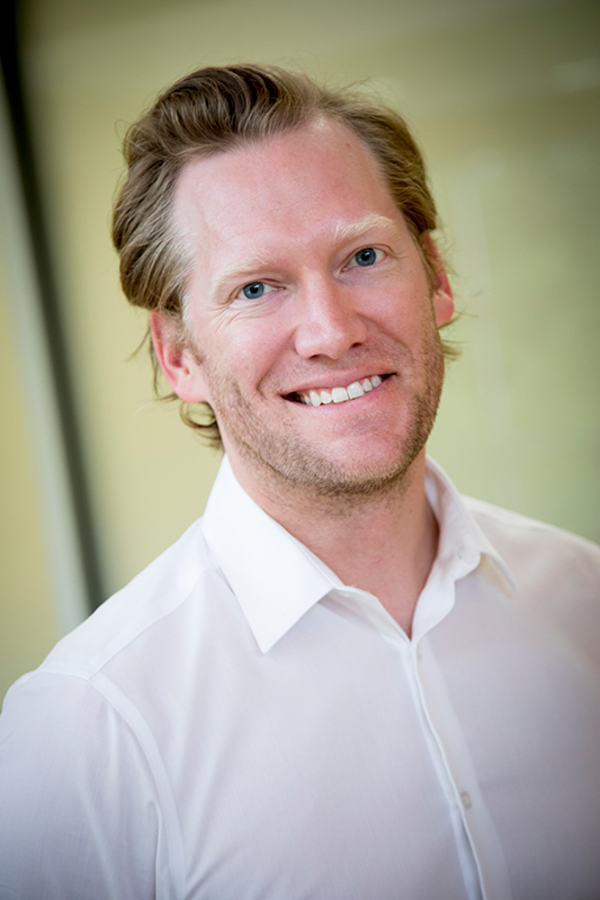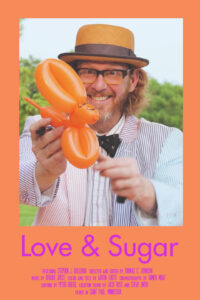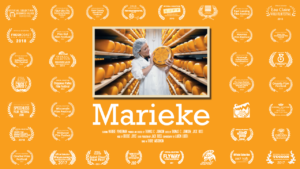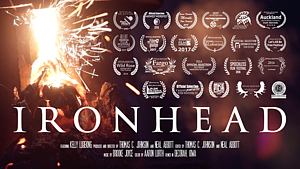Thomas C. Johnson

About
Education: Ph.D., Communication Studies, University of Minnesota
Dr. Thomas C. Johnson is an Associate Professor in the Department of Communication Studies at Luther College. He teaches courses in Paideia, critical media studies, and media production. Along with teaching, Dr. Johnson’s research interests include pedagogy, sport media, television studies, gender studies, and documentary film.
PAID 111/112: Enduring Questions
Paideia is named after the ancient Greek word for “education.” Paideia 111 and 112 seeks to “lay the groundwork for your liberal arts education by helping you develop skills of careful analysis and well-reasoned, articulate responses (spoken and written) so that you can read and understand challenging texts for yourself, and express your views in a way that others will respect” (Paideia Reader).
COMS 133: Media Literacy
This course considers how and why media matters. The focus is on engaging, analyzing, and evaluating mediated texts and practices, in addition to articulating and cultivating arguments about their cultural, political, and social merits. The course includes lectures on programs, audiences, institutions, and contexts, as well screenings and discussion.
COMS 242: Environmental Communication in Belize
This course examines environmental communication and the public sphere in Belize with particular focus on the significant role of eco-adventure tourism in the country. Topics that will be reviewed, analyzed, and critiqued include the study of environmental rhetoric and discourse, media and environmental journalism, public participation in environmental decision-making practices, varying regulatory factors, social marketing and advocacy campaigns, environmental collaboration and conflict resolution, risk communication, and representations of nature in popular culture and green marketing. Information on these subjects will be drawn from lectures and discussions, as well as from visits with government officials, local non-governmental organizations (NGOs), eco-tourism venders, tourists, and other key stakeholders. These undertakings will provide an understanding of how individuals, institutions, societies, and cultures craft, distribute, receive, understand, and use messages about the environment to influence attitudes and initiatives related to its use.
COMS/LS 241: Communication and Adventure Recreation in New Zealand
This course investigates the relationship between communication and adventure recreation in New Zealand. Specific communication-related focuses on media and technology, consumer culture, globalization, and nation building will be addressed through a variety of adventure activities that highlight community sustainability, risk benefit factors, experience-based judgment, ethical behavior, and effective leadership. Information on these subjects will be drawn from lectures, discussions, and interviews, as well as participation in adventure excursions. Ultimately, these undertakings will provide an in-depth framework on how New Zealand uses its unique places, landscapes, and resources to brand itself as a destination for outdoor exploration.
COMS/LS 239: Tourism Ethnography in Hawai’i
This course analyzes tourism in Hawai’i with a specific focus on doing ethnography to better understand the interests of visitors, locals, and other key stakeholders. Topics such as mediated representations, consumer actions, recreational opportunities, leadership initiatives, and sustainability considerations will be addressed via lectures, discussions, excursions, interviews, and most notably, participant observations in which texts such as journal entries, field notes, and photographs will be created to represent key aspects of field experience. These undertakings will provide an in-depth framework as to how and why Hawai’i, with its distinct terrains, communities, and resources, is a place to value, to preserve, and to celebrate.
COMS 258: Video Production
This course explores video production, primarily single-camera field production and editing. The focus is on narrative as communication, message-centered content, and technical expertise. The course includes lectures on phases of production, screen composition, and color temperature, training sessions on lighting techniques, sound recording, and post-production, as well as screenings and discussion.
COMS 260: Communication and Sport
This course draws from scholarly work in critical media studies, relational studies, and sociology to examine cultural, political, and social roles of sport in contemporary society. The focus is on how sport, as well as mediated sport, can be approached critically and read in different ways. The course includes lectures on nationalism, commodification, and identity, as well as screenings and discussion.
COMS/IDS 335: Masculinity in Film
This course takes a feminist perspective to analyze portrayals of sex and gender in film with a particular emphasis on how men and masculinity can be represented. The focus is on how films construct different notions of gender, how films can be read in different ways, and to what social uses film portrayals may be put. The course includes lectures on film criticism, gender theory, and theories of representation, as well as screenings and discussion.
COMS 358: Documentary Storytelling
This course builds on video production skills developed in COMS 258. The focus is on researching, scripting, planning, producing, and editing short subject documentary films. The course includes lectures on the history of the genre, exemplar filmmakers, and dramatic structure, training sessions on shooting, interviewing, and advanced editing, as well as screenings and discussion.
- Ph.D., Communication Studies, University of Minnesota, 2010
Dissertation: “NFL Films and the Re-Production of Pro Football” - M.A., Communication Studies, University of Minnesota, 2006
Thesis: “Relationships Between Televised Sports Viewing Habits and Attitudes About Masculinity” - B.A., Communication, Saint John’s University, 2002
Thomas C. Johnson, “Television, Pro Football and Mobile Privatization, 1939-1970,” Historical Journal of Film, Radio and Television, 40 (2021).
Thomas C. Johnson, “Television, Pro Football and Mobile Privatization, 1939-1970,” Pro Football Hall of Fame Archives (2021).
Thomas C. Johnson, “Producing, Distributing, and Teaching Ironhead,” Journal of Media Education, 7 (2016): 14-17.
Jason Moyer and Thomas C. Johnson, “College Soccer and Evangelical Christianity,” Casing Sport Communication (2015): 282-286.
Thomas C. Johnson, “Deconstructing NFL Films’ They Call It Pro Football,” Teaching Media Quarterly, 2 (2012).
Thomas C. Johnson and Edward Schiappa, “An Exploratory Study of the Relationships Between Televised Sports Viewing Habits and Conformity to Masculine Norms,” Journal of Sports Media, 5 (2010): 53-78.
Thomas C. Johnson, “Television and Children: What Every Parent Needs to Know,” http://criticalmedialiteracy.umn.edu (2008).
 Documentary Film – Love & Sugar (2024)
Documentary Film – Love & Sugar (2024)
Logistics:
- Roles: Director/Editor
- Production: Shot on high definition video, edited with Adobe Premiere Pro CC
- Runtime: 3 minutes 35 seconds
Official Selections:
- Central Florida Film Festival – Mount Dora, FL (January 2025)
- Twin Cities Film Fest – St. Louis Park, MN (October 2024)
- Eagan Art Block Short Film Festival – Eagan, Minnesota (September 2024)
- Berlin Indie Film Festival – Berlin, Germany (September 2024)
Documentary Film – Africa: Not a Single Story (2017)
Logistics:
- Role: Producer (with Novian Whitsitt)
- Production: Shot on high definition video, edited with Final Cut Pro
- Runtime: 15 minutes 52 seconds
Screenings
- Luther College – Decorah, IA (October 2020)
- Luther College – Decorah, IA (May 2020)
- Luther College – Decorah, IA (May 2019)
- Luther College – Decorah, IA (May 2018)
- Luther College – Decorah, IA (May 2017)
 Documentary Film – Marieke (2017)
Documentary Film – Marieke (2017)
Logistics:
- Roles: Producer/Director/Editor
- Production: Shot on high definition video, edited with Final Cut Pro
- Runtime: 7 minutes 15 seconds
Award:
- Best Documentary, Iowa Motion Picture Association Awards – Des Moines, IA (April 2018)
Official Selections:
- Greenwich Village Film Festival – New York, NY (October 2019)
- Film as Idea, Film as Film, Film as Art International Film Festival – Warsaw, Poland (March 2019)
- Door County Short Film Festival – Sister Bay, WI (February 2019)
- Kansas City First Friday Film Festival – Kansas City, MO (December 2018)
- Muscatine Independent Film Festival – Muscatine, IA (November 2018)
- Big Water Film Festival – Ashland, WI (November 2018)
- East Lansing Film Festival – East Lansing, MI (November 2018)
- Eau Claire World Film Festival – Eau Claire, WI (October 2018)
- Fresh Coast Film Festival – Marquette, MI (October 2018)
- Film Girl Film Festival – Milwaukee, WI (October 2018)
- Maumee Film Festival – Maumee, OH (September 2018)
- Sioux City International Film Festival – Sioux City, IA (September 2018)
- Iowa Independent Film Festival – Mason City, IA (August 2018)
- Square Lake Film & Music Festival – Stillwater, MN (August 2018)
- Pittsburgh Independent Film Festival – Pittsburgh, PA (June 2018)
- Interrobang Film Festival – Des Moines, IA (June 2018)
- Snake Alley Festival of Film – Burlington, IA (June 2018)
- Chippewa Valley Film Festival – Eau Claire, WI (April 2018)
- Oneota Film Festival – Decorah, IA (April 2018)
- Speechless Film Festival – Mankato, MN (April 2018)
- Wisconsin Film Festival – Madison, WI (April 2018)
- SHORT to the Point – Bucharest, Romania (March 2018)
- Royal Film Festival – Benton, AR (March 2018)
- Colony Short Film Festival – Marietta, OH (March 2018)
- Wildwood Film Festival – Appleton, WI (February 2018)
- Iowa Public Television’s The Film Lounge – Des Moines, IA (February 2018)
- Oregon Short Film Festival – Portland, OR (February 2018)
- CineSol Film Festival – McAllen, TX (November 2017)
- Weyauwega International Film Festival – Weyauwega, WI (November 2017)
- St. Cloud Film Fest – St. Cloud, MN (November 2017)
- Twin Cities Film Fest – St. Louis Park, MN (October 2017)
- Flyway Film Festival – Pepin, WI (October 2017)
- The Block film & art festival – Logan, UT (October 2017)
- Lake Charles Film & Music Festival – Lake Charles, LA (October 2017)
- Tucson Film & Music Festival – Tucson, AZ (October 2017)
Additional screenings:
- Thew Brewing – Cedar Rapids, IA (December 2019)
- Arlin Falck Assisted Living – Decorah, IA (June 2019)
- Decorah Rotary Club – Decorah, IA (May 2018)
- HyVee Corporate – Des Moines, IA (March 2018)
- Oneota Community Food Co-op – Decorah, IA (February 2018)
 Documentary Film – Ironhead (2015)
Documentary Film – Ironhead (2015)
Logistics:
- Roles: Writer/Director/Editor (with Neal Abbott)
- Production: Shot on high definition video, edited with Final Cut Pro
- Runtime: 9 minutes 15 seconds
Awards:
- Best Short Documentary, Greenwich Village Film Festival – New York, NY (October 2016)
- Honorable Mention for the Walter Ordway Best of Fest Award, Oneota Film Festival – Decorah, IA (March 2015)
Semi-Finalist:
- Meraki Film Festival – Madrid, Spain (February 2018)
Official Selections:
- Fresh Coast Film Festival – Marquette, MI (October 2018)
- Deep in the Heart Film Festival – Waco, TX (March 2018)
- Meraki Film Festival – Madrid, Spain (February 2018)
- MidWest WeirdFest – Eau Claire, WI (March 2018)
- First Friday Film Festival – Kansas City – Kansas City, MO (November 2017)
- The Block art & film festival – Logan, UT (October 2017)
- Auckland International Film Festival – Auckland, New Zealand (October 2017)
- Beloit International Film Festival – Beloit, WI (March 2017)
- Iowa Public Television’s The Film Lounge – Des Moines, IA (February 2017)
- Sioux City International Film Festival – Sioux City, IA (February 2017)
- Kansas International Film Festival – Overland Park, KS (November 2016)
- Greenwich Village Film Festival – New York, NY (October 2016)
- Let’s All Be Free Film Festival – London, England (October 2016)
- Wild Rose Independent Film Festival – Des Moines, IA (May 2016)
- Fargo Film Festival – Fargo, ND (March 2016)
- Red Wasp Independent Film Festival – College Station, TX (March 2016)
- Speechless Film Festival – Mankato, MN (March 2016)
- Frozen River Film Festival – Winona, MN (February 2016)
- Liverpool Lift-Off Online Film Festival – Liverpool, England (February 2016)
- Fargo Fantastic Film Festival – Fargo, ND (October 2015)
- Milwaukee Film Festival – Milwaukee, WI (October 2015)
- Yellowknife International Film Festival – Yellowknife, Canada (October 2015)
- Oneota Film Festival – Decorah, IA (March 2015)
Additional screenings:
- Herberger Institute for Design, Arizona State University – Tempe (March 2023)
- Artisan Sanctuary, Coe College – Cedar Rapids, IA (September 2021)
- Mid-South Sculpture Alliance Conference – Knoxville, TN (October 2018)
- St. Paul Art Crawl – St. Paul, MN (April 2018)
- Decorah Rotary Club – Decorah, IA (June 2017)
- Independent Lifestyles Live Stream Studio – St. Paul, MN (May 2017)
- Bethany Lutheran College – Mankato, MN (October 2016)
- 8th International Conference on Contemporary Cast Iron Art – Scranton, PA (June 2016)
- Cedar Rapids Houby Days – Cedar Rapids, IA (August 2015)
- White Bear Center for the Arts – White Bear Lake, MN (July 2015)
- Winneshiek Hotel – Decorah, IA (July 2015)
Documentary Film – Hours with Amanda (2013)
Logistics:
- Roles: Writer/Director/Editor (with Michael Crowe)
- Production: Shot on high definition video, edited with Final Cut Pro
- Runtime: 5 minutes 46 seconds
Official Selections:
- Mt. Hood Independent Film Festival – Portland, OR (November 2013)
- Speechless Film Festival – Mankato, MN (March 2013)
- Oneota Film Festival – Decorah, IA (January 2013)
Documentary Film – Hours with Ben (2013)
Logistics:
- Roles: Writer/Director/Editor (with Michael Crowe)
- Production: Shot on high definition video, edited with Final Cut Pro
- Runtime: 5 minutes 44 seconds
Official Selections:
- Speechless Film Festival – Mankato, MN (March 2013)
- Oneota Film Festival – Decorah, IA (January 2013)
Documentary Film – Hours with Novian (2013)
Logistics:
- Roles: Writer/Director/Editor (with Michael Crowe)
- Production: Shot on high definition video, edited with Final Cut Pro
- Runtime: 5 minutes 48 seconds
Official Selections:
- Louisville’s International Festival of Film – Louisville, KY (October 2013)
- Speechless Film Festival – Mankato, MN (March 2013)
- Oneota Film Festival – Decorah, IA (January 2013)
Documentary Film – Order in Chaos (2002)
Logistics:
- Roles: Writer/Director
- Production: Shot on DV, edited with Final Cut Pro
- Runtime: 16 minutes 57 seconds
Screenings:
- Saint John’s University – Collegeville, MN (April 2002)
- Fashion Institute of Technology – New York City, NY (March 2002)
Documentary Film – Sons of the Road (2001)
Logistics:
- Roles: Producer/Director
- Production: Shot on DV, edited with Final Cut Pro
- Runtime: 21 minutes 45 seconds
Award:
- Best Documentary, Georgia Tech Cable Network Film and Video Festival – Atlanta, GA (February 2002)
Finalist:
- Best Documentary, Movie Gallery Student Video Competition, Auburn University – Auburn, AL (April 2002)
Additional screenings:
- Saint John’s University – Collegeville, MN (April 2002)
- University of Notre Dame Australia – Fremantle, Australia (May 2001)